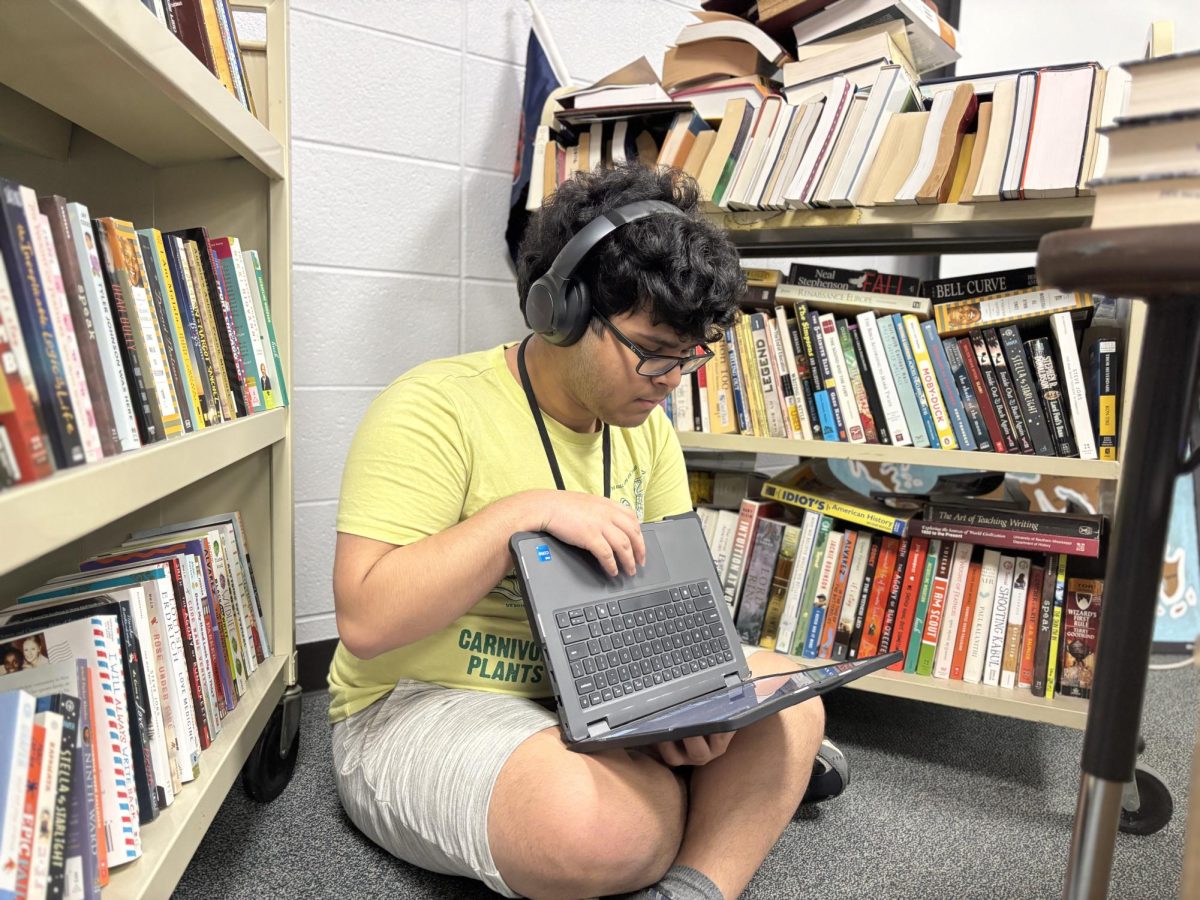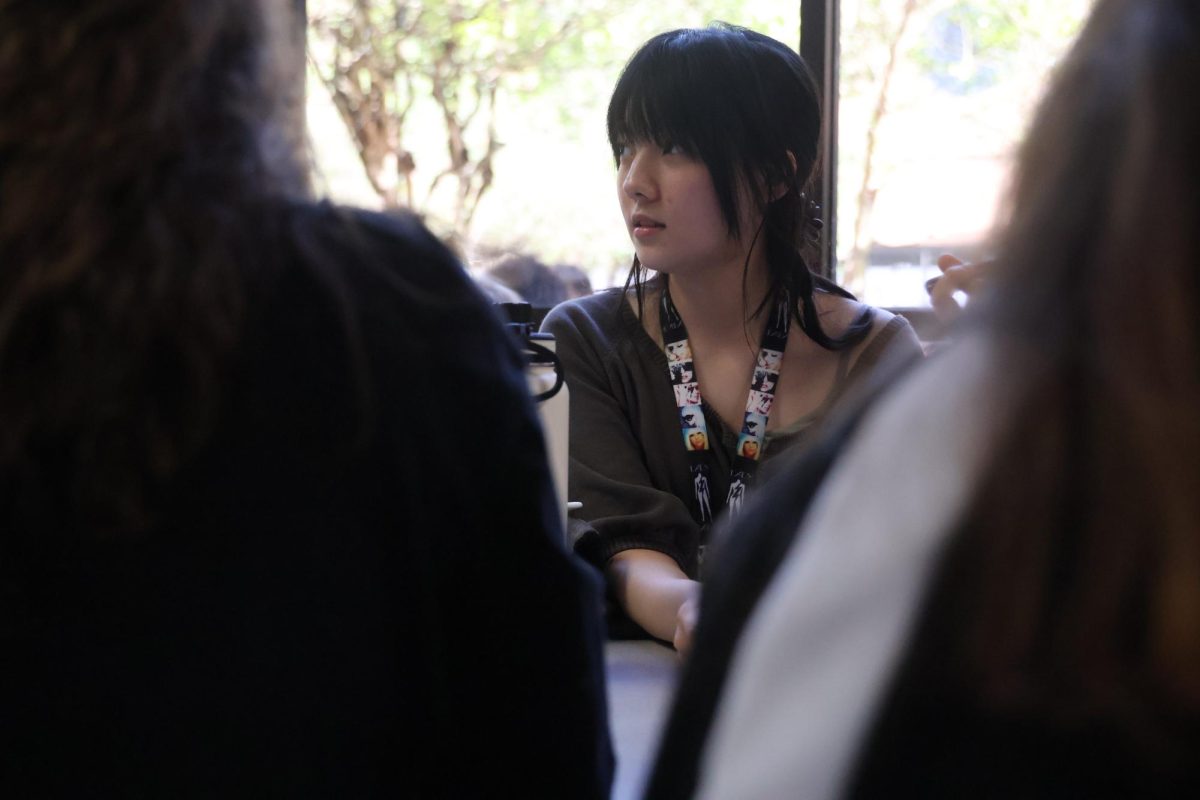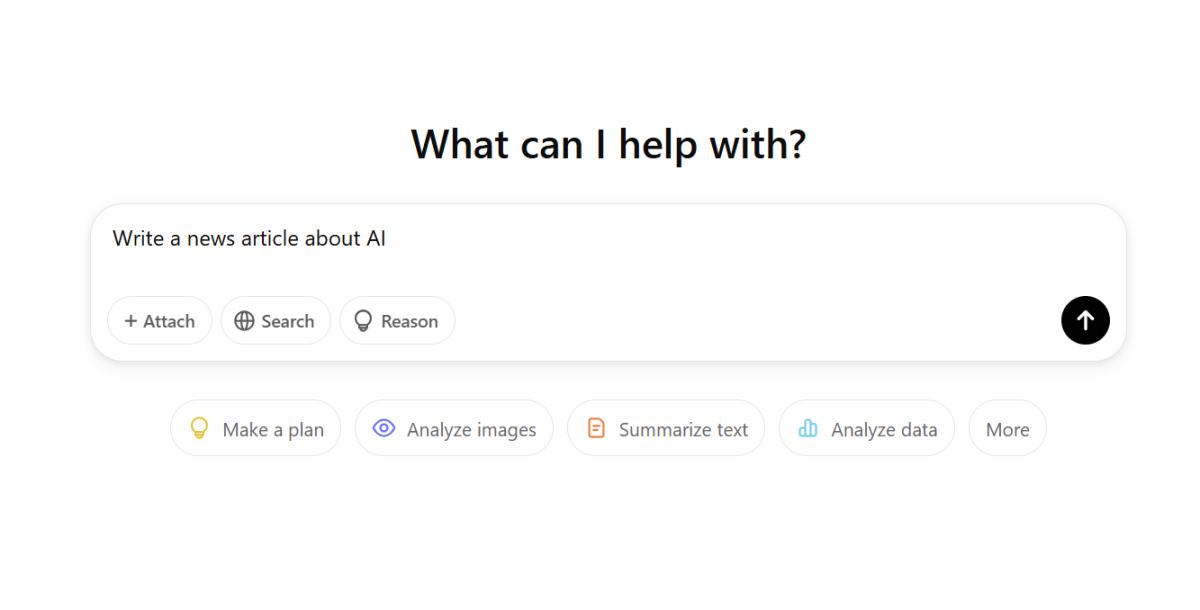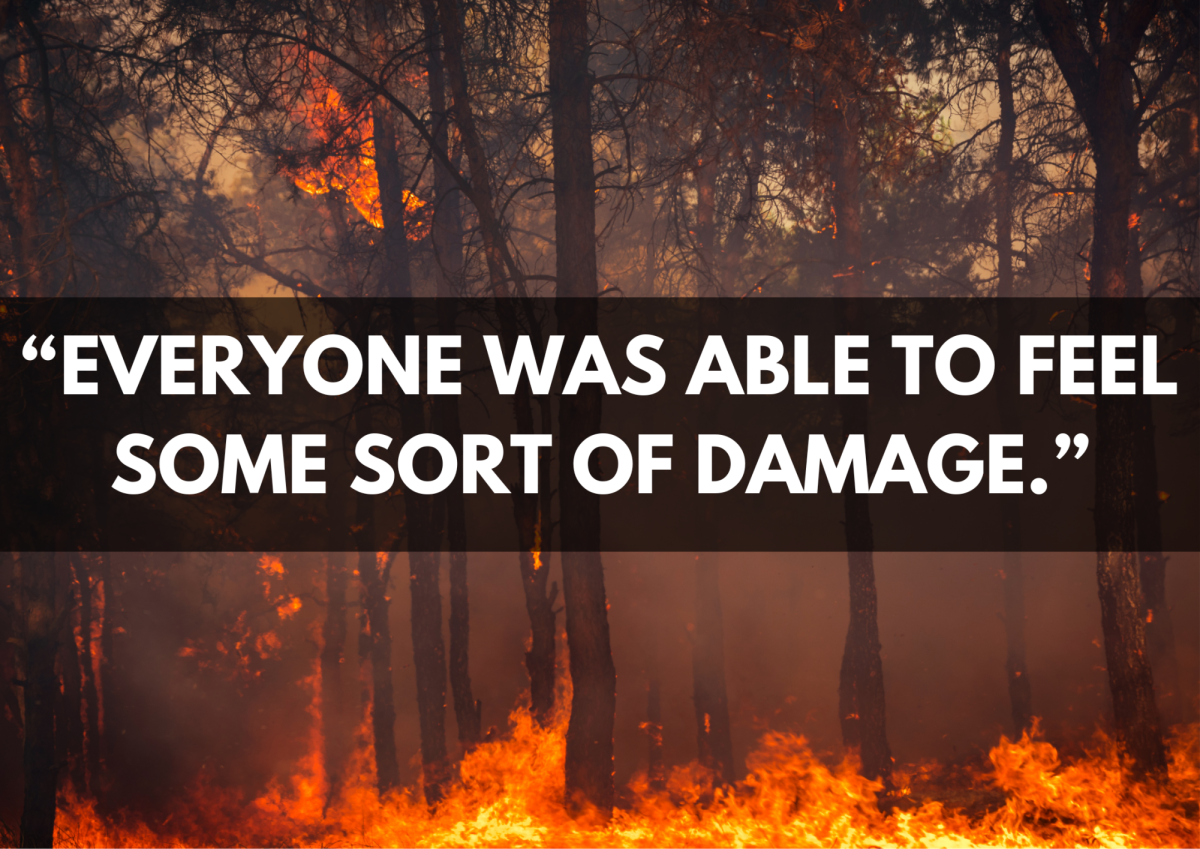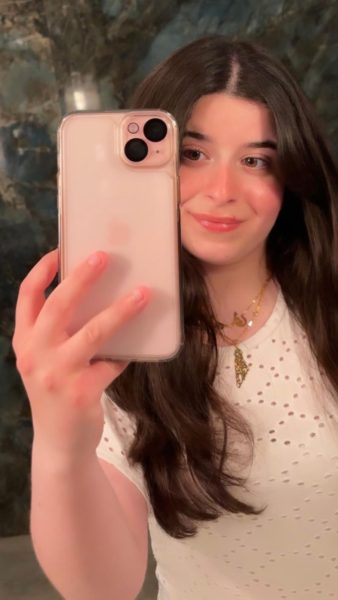According to the Children’s Reading Foundation, as of 2024, two out of 10 children enter kindergarten with literacy skills two to three years lower than their grade level. Another two out of those 10 children start school with a one-year disadvantage. Illiteracy has increased drastically.
“There’s definitely some students who have a difficult time with reading,” librarian Marion Brennan said. “They could have a reading disability or they just may never have had literacy opportunities to really explore what they want to read.”
Other than children with reading disabilities, many students are using their technology to avoid reading or listening to books. The vocabulary – or lack thereof – people are exposed to throughout the day determines how well one’s ability to comprehend is.
“Students who are not reading as comfortably as their peers tend to be highly resistant to reading or very self-conscious about it tend to struggle in all subject areas due to this real or perceived skill gap,” AP English Language and Literature teacher Glenys McMennamy said.
Senior Naavya Agarwal enjoys reading many different genres such as romance, fantasy, and historical fiction, around four times per week. Agarwal is also the president of the National English Honor Society.
“Reading has helped take my mind off of things when I get stressed,” Agarwal said. “It has also helped me keep up with books that I am assigned to read. An added bonus is now I can read faster!”
While senior Samara Parihar doesn’t have a passion for reading, her academic performance isn’t affected since she is still able to successfully complete her assignments and get outstanding grades.
“I’ve tried getting into a habit of reading, but I could never find them interesting enough to want to keep reading,” Parihar said.
According to Apex Aba Therapy, 86% of people prefer watching movies over reading because a story is given to the audience visually, and it requires less effort than reading.
“I don’t know that it is a decline in interest at the heart of it but more that students are not in the habit of reading without distractions,” McMennamy said. “It used to be reading or doing school work in front of the distraction of the television. Now the distractions are the multiple devices and alerts and many tabs open making the habit of focusing on the task at hand tougher.”

